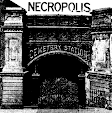ON THE SIXTH NIGHT OF HALLOWEEN … I watched The Tenant (1976), based on the novel of the same name by Roland Topor and directed by Roman Polanski.
A man named Trelkovsky seems oddly insistent on renting a certain apartment in Paris where the former tenant, a female Egyptologist, tried to kill herself by jumping out the window. He goes so far as to visit the former tenant in the hospital to obtain permission to take her place. But he finds that she is bandaged from head to toe and will only scream in agony in response to Trelkovsky’s questions. She dies the next day. As a result, Trelkovsky is finally allowed to move in. The apartment still contains the former tenant’s belongings, which apparently are now Trelkovsky’s responsibility. The other tenants immediately start making bizarre attempts to manipulate Trelkovsky’s behavior. Likewise, the café owner across the street pressures Trelkovsky into drinking the same drink and smoking the same brand of cigarettes as the former tenant. A few days later, the apartment is broken into and everything that did not belong to the former tenant is taken. One morning, Trelkovsky wakes up to find that someone has made his face up with the former tenant’s lipstick and eyeshadow and put him in her dress. Trelkovsky becomes more and more paranoid that there is conspiracy to transform him into the former tenant. Eventually, he is compelled to dress as her again and jump out the window.
The twist here is that he wakes up in a hospital bed bandaged from head to toe, just like the former tenant. His week-prior self then visits him and addresses him as the former tenant, to which he can only scream. Thus, we realize that Trelkovsky is caught in a time loop that forces him to transform into a strange woman and reenact her last days.
Well, perhaps.
The Tenant partially builds up three mutually exclusive narratives without committing to any of them. First, there is plenty of evidence that Trelkovsky is simply suffering from a paranoid breakdown causing him to hallucinate instances of the other tenants plotting against him. Second, it could be that reality itself is unstable, such that the environment of the tenement building is best understood as a Kafkaesque nightmare region. Third, there is equally strong evidence that the tenants are enacting some sort of diabolical ritual intended to bring about a cyclic suicidal sacrifice.
But, on the one hand, there is truly evocative ambiguity, and on the other, there is noncommittal hedging between various narrative choices that ends up weakening all of them. At least on this first viewing, I felt The Tenant was guilty of the latter. Polanski’s own previous horror classic, Rosemary’s Baby, is a much stronger film about occupants of an apartment building comprising a secret cult that conspires against the new resident. Rosemary's Baby's commitment to the cult narrative allows it to flesh out the sinister characters of the other tenants and establish the nature and reason for their plot. Likewise, The Sentinel, which came out the same year as The Tenant and which was heavily influenced by Rosemary’s Baby, more boldly communicates how the tenants in its eldritch apartment building are grooming their new neighbor for a predestined role (I’d recommend The Sentinel over The Tenant, if you're in the market for '70's weird apartment horror). I’m just not sure what the possibility that it’s all in Trelkovsky’s head is supposed to accomplish, other than dilute the impact of the finale. Trelkovsky is not a particularly fascinating character on his own, since we learn nothing about his life before he became hell-bent on renting this particular apartment, so it’s not clear how extensive speculation about his mental state is supposed to contribute to our horror.
As far as our TWISTED TWINS & DUPLICITOUS DOPPELGÄNGERS theme, The Tenant mirrors The Night House as a work of architectural horror where a labyrinth of duplicate locations traps and forces look-alike characters to reenact the same bloody fates. But again, I feel The Night House executes this idea much more strikingly-- though admittedly The Night House has the benefit of close to fifty additional years of horror cinema innovation.


No comments:
Post a Comment